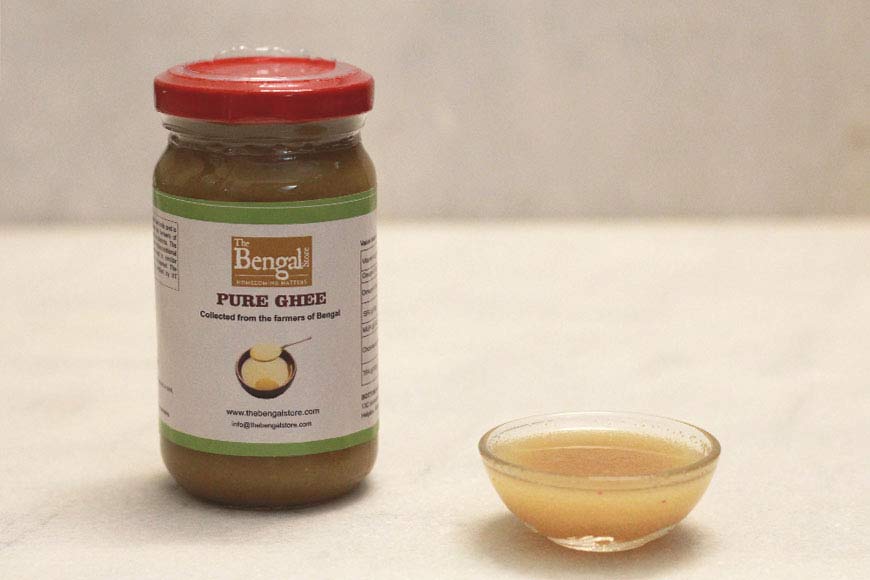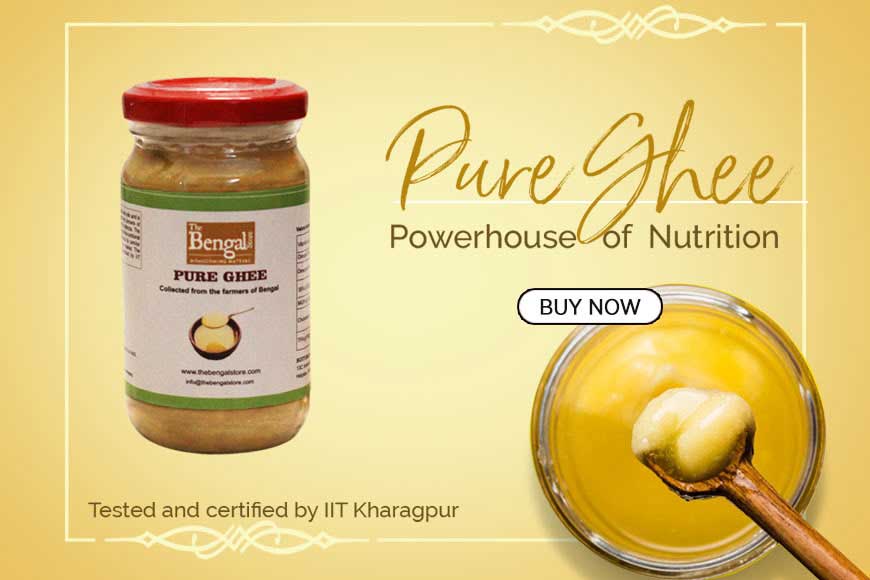The many good things about pure ghee

Spurious or artificial ghee can kill. We start with the bad news so that we can give you the good news later. And so that you know that the ghee you're buying from the market may actually be poisoning you. The principal reason for this is that many brands of commercially manufactured ghee contain animal and/or hydrogenated fats, which can have numerous adverse effects. To begin with, they can cause blockages in your circulatory system, which impairs the flow of blood and may cause heart failure. Hydrogenated fats will also increase your bad cholesterol levels.
Additionally, the ghee may contain animal bone dust, which is likely to affect the brain, liver, and kidneys, and wreak havoc on your digestive system.
Among other harmful substances present in artificial ghee may be excess lead, cadmium, chromium, and zinc. At various levels of consumption, they can damage your brain, kidney, urinary tract, heart, liver, and even the reproductive organs. Besides, the artificial colours and flavours in spurious ghee greatly increase the risk of cancer.
Now for the good news. Compare what you have just read with what you are about to.
Not for nothing has ghee, that is purified butter, been a staple of both Indian cuisine and Ayurvedic medicine since ancient times. Apart from its rich, aromatic flavour, it has several health benefits too.
At its most basic, natural ghee is made by cooking butter for an extended period of time and straining out nearly all the milk solids and water, leaving pure butterfat behind. This makes natural ghee a near perfect substitute for butter. Besides, natural ghee is free of additives, preservatives and trans fats. In its pure form, ghee lasts for up to a year without refrigeration.
Naturally, genuine ghee reduces your risk of consuming cancer-causing agents, but not merely owing to the absence of chemicals. One of the properties of ghee is its very high smoking point, which ensures that it doesn't break down into its components or carcinogenic radicals even under high heat. In addition, natural ghee is an abundant source of antioxidants, primarily Vitamin E, one of the richest antioxidants found in food. It also contains other fat-soluble vitamins, and monounsaturated Omega 3, which reduces cholesterol and the risk of heart disease.
Natural ghee, which you can easily buy online, is also an excellent moisturiser, both for your skin and scalp, working on dry skin and promoting hair growth.
The anti-inflammatory properties of natural ghee also aid digestion and make it a viable alternative for those with dairy allergies. The latter is also because natural ghee contains only traces of the milk protein lactose.
By now, you ought to have realised that the tussle between natural and artificial ghee is really a no brainer. If you still have doubts, try natural ghee for some time, and let us know what you think!












